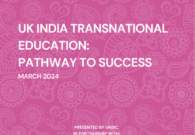India and the SDGs
The Sustainable Development Goals (SDGs) are an ambitious declaration of global aspirations, ranging from eliminating poverty, hunger, and violence against women to providing legal identity and equal access to justice to every person in the world. Adopted unanimously by the 193 UN Member States in September 2015, the SDGs are meant to guide global development efforts for 15 years, from 2015 to 2030.
India was an influential player in the international negotiations that produced the SDGs, voicing critical developing country concerns and pressing developed countries to clarify their obligations. India’s interventions shaped many aspects of the SDGs, including the geographical scope of the goals.
Given its rising world power status and prominent role in the formulation of the SDGs, India arguably has a special duty to bring these goals to fruition. It is encouraging that Prime Minister Modi has affirmed India’s strong commitment to the SDGs.
There is no denying the fact that as a country, India has gained tremendously through CSR 1.0, which saw corporates come forward in the last 4-5 years to build social infrastructure across India. But with data and spending patterns in front of us, CSR 2.0 aims to create a more sustainable socioeconomic infrastructure to achieve India’s $5 trillion economy goal based on the Government’s principle of “sabka saath, sabka vikas”
India’s way ahead to achieve this
Shepherding the achievements of the SDGs is an enormous task that requires the involvement of every sector and each level of society. The experiences of many countries clearly illustrate India needs to build a socio-economic infrastructure to drive this inclusive growth.
Hence, Modi’s Government, in its first term from 2014-2019, had the development and implementation of multiple socio-economic programmes high on its list of priorities and it pursued and executed them vigorously with active participation from the private sector as well as bilateral and multilateral assistance.
Now, with the re-election of Mr. Modi, with an even larger majority, there has been a clear endorsement of the policies of his Government and this has resulted in a renewed thrust on socio-economic programmes aimed at reviving jobs, investments, exports, enhancing delivery of healthcare, housing and water for all, infrastructure development and reviving the agricultural sector.
There are certain programmes, amongst the multitude, that are run under the direct supervision of the Prime Minister’s Office with clear timelines and oversight, since these programmes aim to deliver a larger change socially, economically and an element of affecting behavioural change within the larger public.
UKIBC supports the GOI’s initiative and believes that sustainable development is increasingly being accepted as a fundamental objective for public policy and decision-making.
This growing acceptance of sustainable development as an over-arching policy goal has stimulated interest in assessing the impact of particular interventions by operating UK businesses on sustainable development goals in India at aggregate, sectoral or project levels.
This is important because, growth in India is bound to involve engaging with the social needs and complexities of the market. These issues are no longer just the government’s responsibility, or purely philanthropic efforts and hence any global business looking for an effective path for growth should bring social impact into the core of its strategy and operations.
UK businesses operating in India have been committed in this space for a long time and UKIBC acknowledges this commitment and is keen to highlight the UK’s leading and longstanding support through the launch of a ‘Socio-Economic Impact Project’.
Given the commitment of UK businesses towards the Indian market, the UKIBC’s ‘Socio-Economic Impact Initiative’ aims to showcase UK businesses contribution in the space and map it against the United Nations – Sustainable Development Goals for enhanced contribution towards SDG initiatives of the Government of India.







